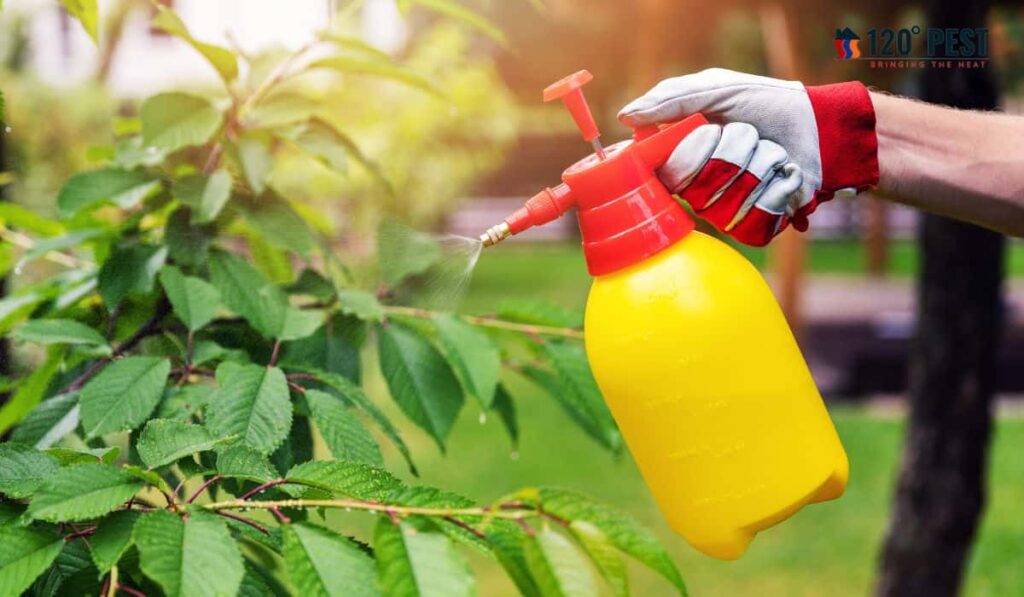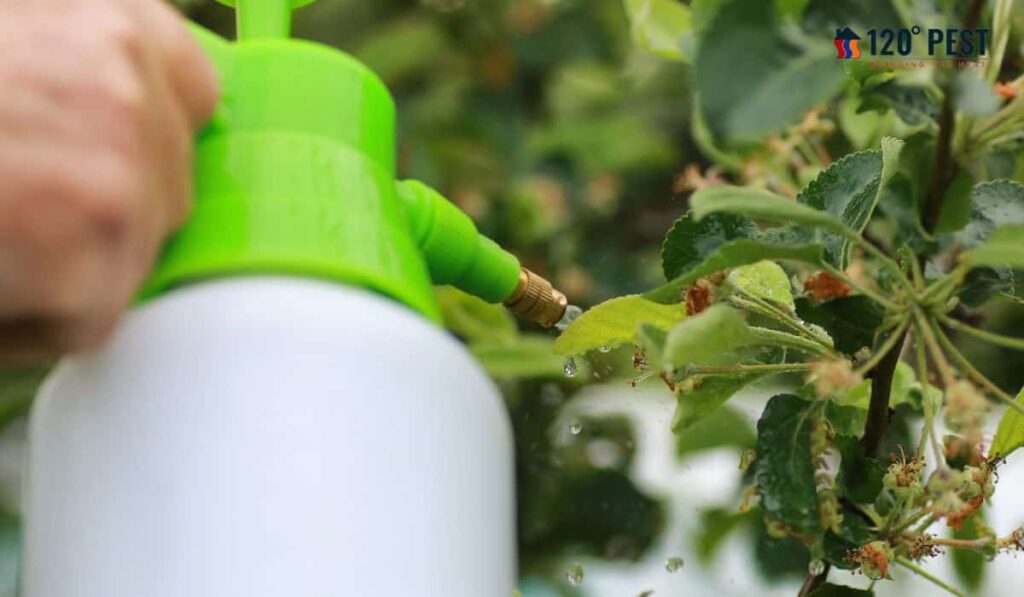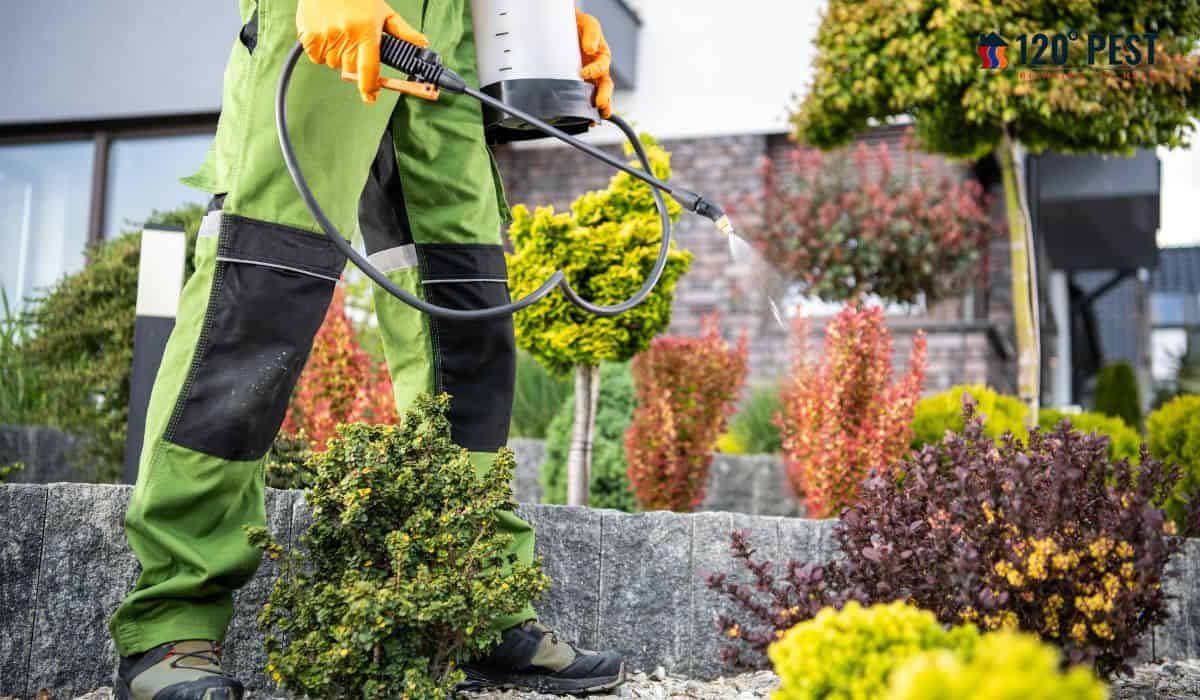Maintaining a thriving garden can be an immensely rewarding endeavor, but it often comes with the challenge of managing pests that threaten the health and beauty of your plants.
While chemical pesticides may provide quick results, they can also harm beneficial insects, disrupt ecosystems, and even pose risks to human health.
Fortunately, there’s a more environmentally-friendly approach – natural garden pest control.
In this comprehensive guide, we’ll delve into effective methods of safeguarding your garden using nature-inspired techniques, promoting a harmonious coexistence between your plants and the environment.
Benefits of Natural Garden Pest Control:
Preserving Beneficial Insects: One of the most significant advantages of natural pest control is the preservation of beneficial insects, such as ladybugs, bees, and spiders, which play a vital role in maintaining a balanced ecosystem.
These insects often act as natural predators to common garden pests, helping keep their populations in check.
Protecting Human Health: Chemical pesticides can potentially leave residues on fruits and vegetables, posing health risks when consumed.
Natural methods eliminate this concern, ensuring that your homegrown produce remains safe and wholesome.
Sustainability: Natural pest control methods are sustainable and eco-friendly, minimizing the negative impact on the environment.
This approach aligns with the principles of organic gardening and contributes to long-term soil health.
Enhancing Soil Quality: Chemical pesticides can disrupt the delicate balance of soil organisms.
Natural solutions, on the other hand, promote soil fertility and microbial diversity, ultimately benefiting plant growth.
Effective Natural Pest Control Methods:
Companion Planting: This method involves planting certain species that repel pests alongside susceptible plants.
For instance, marigolds emit a scent that deters aphids and nematodes, making them excellent companions for tomatoes and roses.
Attracting Beneficial Insects: Encourage natural predators by creating habitats that attract ladybugs, lacewings, and parasitic wasps.
These insects will feed on pests such as aphids, mites, and caterpillars.
Introducing Predatory Insects: If pest populations are overwhelming, consider purchasing predatory insects like ladybugs and praying mantises to release in your garden.

They will target and control the problem pests.
Homemade Insecticidal Soaps: A simple mixture of mild soap and water can be sprayed on plants to smother soft-bodied insects like aphids, whiteflies, and spider mites.
Be sure to use a mild soap without harsh chemicals.
Neem Oil: Derived from the neem tree, neem oil acts as a natural insect repellent, disrupting the life cycle of pests while being harmless to humans, pets, and beneficial insects.
Diatomaceous Earth: This natural powder is composed of the fossilized remains of marine organisms.
When sprinkled around plants, it damages the exoskeleton of insects, leading to dehydration and death.
Physical Barriers: Use row covers, netting, or screens to physically block pests from reaching your plants. This method is particularly effective against flying insects and larger pests.
Homemade Repellent Sprays: Create your own repellent sprays using ingredients like garlic, chili peppers, and vinegar. These concoctions deter pests through their strong scents or taste.
Conclusion
Embracing natural garden pest control not only protects your plants from destructive insects but also contributes to a healthier environment and sustainable gardening practices. By harnessing the power of nature’s mechanisms, you can create a garden that thrives in harmony with the ecosystems around it. Whether you’re repelling pests with companion plants, attracting beneficial insects, or using homemade remedies, the journey toward a flourishing garden is both rewarding and eco-friendly. So, bid farewell to harmful chemicals and welcome a greener, more natural way of tending to your garden’s needs.
FAQs
Are natural pest control methods as effective as chemical pesticides?
While natural methods may take more time to show results, they can be highly effective when implemented correctly. They often provide a long-term solution by addressing the root causes of pest problems rather than just treating the symptoms.
Will using natural pest control methods harm beneficial insects?
No, the beauty of natural pest control lies in its ability to target specific pests while sparing beneficial insects. It promotes a balanced ecosystem that supports the health of both plants and wildlife.

How often should I apply natural pest control solutions?
The frequency of application varies based on the method used and the severity of the pest issue. Regular monitoring of your garden and adjusting treatments as needed will help maintain effective pest control.
Can I combine different natural pest control methods?
Absolutely! In fact, combining various methods can enhance their effectiveness. For example, using companion planting along with introducing beneficial insects can create a powerful defense against pests.
Are natural pest control methods safe for edible crops?
Yes, natural methods are generally safe for edible crops. Unlike chemical pesticides, they don’t leave harmful residues on the produce. However, always ensure that any sprays or treatments are washed off thoroughly before consumption.
Do natural pest control methods require special equipment?
Most natural pest control methods can be applied using basic gardening tools and household items. Some methods, such as introducing predatory insects, may involve purchasing these insects, but they often require minimal equipment.





Can you be more specific about the content of your article? After reading it, I still have some doubts. Hope you can help me.